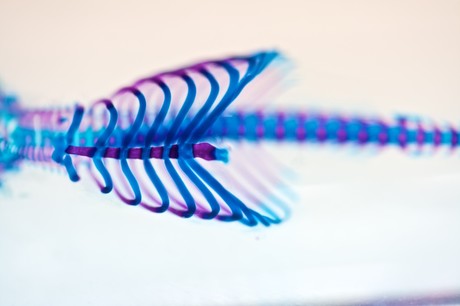3D-printed sternum successfully implanted

A collaboration between CSIRO, Melbourne medical implant company Anatomics and British doctors has resulted in the world’s first implementation of a 3D-printed titanium and polymer sternum into a patient.
Designed by Anatomics and printed at CSIRO’s Lab 22 facility in Melbourne, the implant was custom made for 61-year-old Edward Evans, who had previously had his sternum removed due to a rare infection. While Evans recovered well from this initial surgery, the absence of a solid sternum meant that his heart and lungs were left extremely vulnerable.
Sternum implants are typically made from a hand-moulded cement block wedged in a synthetic mesh, but doctors have been searching for a better, more modern alternative. Evans’ surgeon found this alternative by contacting Anatomics, which is a world leader in the design and manufacture of bespoke surgical implants.
Anatomics designed a sternum featuring titanium — a strong, lightweight, biologically compatible metal that is not rejected in human bodies. The company’s designs were then sent to CSIRO, where they were fed into a 3D printer full of powdered titanium. The particles were fused together layer by layer by an electron beam until a sternum had been printed that would precisely fill the defect in Evans’ chest.
The printed sternum was returned to Anatomics for processing and cleaning and was coated in porous polyethylene — a substance manufactured to create a bone-like porous architecture and which also helps with tissue adhesion. Finally, the implant was sterilised and shipped to the UK for surgery.
The operation marked the first time a titanium sternum combined with a synthetic polymer has been used to replace bone, cartilage and tissue in a patient. Evans has since made a successful recovery, with motion capture tests finding that his breathing and chest movements have been corrected.
AusBiotech and Proto Axiom partner on investor-focused life sciences programs
AusBiotech and Proto Axiom have announced a partnership to strengthen national coordination...
The University of Sydney formalises cervical cancer elimination partnership
The success of a cervical cancer elimination program has led to the signing of a memorandum of...
Noxopharm says paper reveals science behind its immune system platform
Clinical-stage Australian biotech company Noxopharm Limited says a Nature Immunology...




